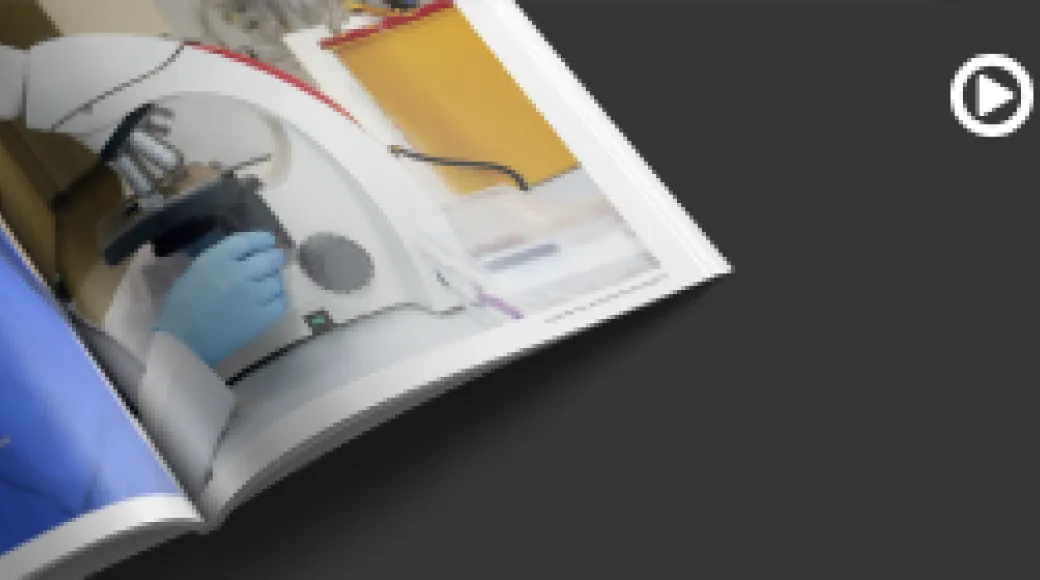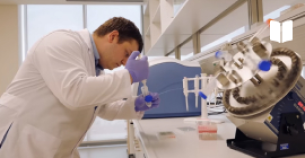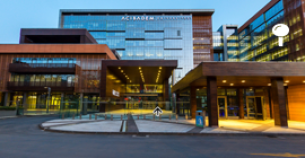Objectives
• To ethically apply comprehensive assessment and evidence-based treatment methods tailored to individuals and society, based on theoretical knowledge and clinical skills.
• To cultivate professionals who keep up with advancements in their field, embrace lifelong learning, engage in research, and value multidisciplinary teamwork.
• To train highly sought-after healthcare professionals at national and international levels through the graduates we educate.
Goals
• To educate graduates who embrace the core values of our university and department.
• To develop individuals who can act independently, take initiative, and possess problem-solving skills.
• To nurture creative thinkers who apply their knowledge while prioritising societal benefit.
Vision
To provide education at national and international standards, producing graduates who are highly sought after in these fields; to be a pioneering and innovative leader in education, research, and service; and to become one of the best physiotherapy and rehabilitation departments in Turkey.
Mission
To train physiotherapists who, guided by universal and cultural values, keep up with technological and scientific advancements; effectively apply both theoretical and practical knowledge in their professional careers; embrace lifelong learning and research; possess strong communication skills; work for the benefit of society; actively contribute to improving quality of life; are aware of their professional rights and responsibilities; and uphold ethical values without compromise. Additionally, to conduct scientific research that contributes to both science and society and to represent our profession, university, and country at national and international levels.
Core Values
• Scientific approach
• Commitment to ethical principles
• Modernity
• Empathy
• Respect
• Fairness
• Transparency
• Freedom of thought and expression
• Accountability to society
• Effective communication skills
• Lifelong learning
• Professional awareness
Internal Stakeholders
• Senior Management
• Students
• Academic Staff
• Administrative Staff
• Affiliate Hospitals (Acıbadem Maslak and Acıbadem Atakent Hospitals)
External Stakeholders
• Other Faculties and Departments of the University
• Alumni
• Acıbadem Healthcare Group
• Healthcare and Educational Institutions with Physiotherapist Employment, Compliant with Clinical Practice Guidelines
• Family Members of Students
• Provincial Health Directorate
• Other Universities
• Patients and Patient Families
• Professional Associations
• Society
Program Competencies
1. Develops the ability to apply theoretical and practical knowledge related to basic medical and clinical sciences in the field of physiotherapy and rehabilitation.
2. Provides essential theoretical and practical professional knowledge to conduct necessary analyses on individuals using assessment and evaluation methods specific to physiotherapy and rehabilitation. Associates the acquired knowledge of evaluation with the holistic treatment of the individual and ensures its effective and safe documentation.
3. Conducts clinical analysis during the application process by using theoretical and practical knowledge in physiotherapy and rehabilitation, and related fields. Integrates critical analysis into decision-making processes and contributes to problem-solving.
4. Develops the ability to select, interpret, and use contemporary methods/tools related to physiotherapy and rehabilitation applications.
5. Possesses sufficient knowledge and skills to create preventive/supportive/developmental physiotherapy programs aimed at individual and community health.
6. Develops the ability to work effectively both individually and in teams (interdisciplinary/multidisciplinary). Supports the application of the profession within the framework of universal ethical principles.
7. Internalises the principle of lifelong learning. Acquires the skills to conduct research, follow scientific and technological developments, interpret them, and develop new ideas.
8. Instils an understanding of the universal and societal impacts of professional duties, applications, and responsibilities, and their legal consequences. Strengthens awareness of quality management, environmental and cultural values protection, occupational health, and safety.
9. Develops effective communication skills (oral and written) with colleagues, patients, and society. Ensures proficiency in English at least at the "European Language Portfolio B1 General Level" to follow professional developments.
10. Supports the effective use of up-to-date information and communication technologies and computer software at least at the "Advanced Level of the European Computer Driving Licence" to access and disseminate knowledge in the field.
Strengths
• High ranking in inter-departmental rankings in Turkey according to OSYS (Centralized Student Selection and Placement System) preference results
• National accreditation
• Contemporary, unique, and evidence-based undergraduate curriculum
• Pilot studies conducted during the transition process to Student-Centered Education (ÖME)
• A wide range of practical courses offered
• Opportunities for double major and minor programs
• The university's advanced educational infrastructure and facilities
• A dynamic, young, motivated, innovative academic staff with expertise in their field and clinical experience
• Academics contributing to science and society, representing the profession, university, and country at both national and international levels
• National and international student, academic staff exchange programs
• Modernly equipped Clinical Simulation and Education (CASE) Center providing educational opportunities for internal and external stakeholders
• Optional English preparatory program
• Effective student advising
• Flexible and dynamic structure that quickly adapts to changing conditions, such as pandemics and earthquakes
• Graduate education programs
• High visibility of the department internationally, with international students
• Increased number of graduates leading to higher recognition of the department
• Opportunities for practical training at Acıbadem Healthcare Group’s affiliated hospitals, which are equipped with current, advanced technological infrastructure
• Educational, teaching, and research collaborations with Acıbadem Healthcare Group, a proven national and international brand in healthcare
• Collaboration opportunities with various healthcare and educational institutions that employ physiotherapists and adhere to clinical practice guidelines
• Academic and administrative staff who embrace the institutional culture and internalize their responsibilities
• Student campus easily accessible by public transport
• Interdisciplinary and multidisciplinary work culture with a health-themed university identity
• Strong contribution of the university in participation in publications, projects, and scientific activities
• Easy access to administrative units with fast decision-making processes
• Management approach that is open to internal and external evaluations
• A rich library service with resources specific to the field that support professional development in both the native language and foreign languages
Areas For Improvement
• The transition process to Student-Centered Education (ÖME) has not yet been completed
• Due to the heavy administrative workload, academic staff cannot allocate enough time for academic activities
• Insufficient academic staff salaries
• Lack of academic performance reward and incentive system
• Restrictions on undergraduate students' participation in scientific research
• The need for a system to facilitate the adaptation of international students to the university
• Insufficient administrative staff salaries, with newly hired staff receiving the same salary as experienced staff, leading to a weak sense of institutional belonging due to the heavy workload, and a lack of a salary policy to employ and retain qualified and adequate personnel
• Insufficient number of administrative staff
• Academics from the Faculty of Medicine assigned to the department being scattered across different locations
• Lack of sufficient collaboration between the basic sciences and the department
• The distance between affiliated hospitals and the campus
• Lack of individual budgets for each academic unit
• The university does not have its own educational and research hospital
• Insufficient outdoor spaces within the campus
• Insufficient number of office spaces for the department
• Inadequate social and cultural activities
• A limited number of international collaborative projects
• Lack of integration between all information systems, insufficient automation to meet needs, slow progress in information transfer, difficulty accessing desired data from a single system
• Limited collaboration with alumni
Opportunities
• The increasing demand for qualified healthcare professionals nationwide due to the rapid growth of the healthcare sector
• Access to the infrastructure of Acıbadem Healthcare Group Hospitals and the availability of practical training alternatives
• Acıbadem Healthcare Group Hospitals prioritising their own graduates for employment and offering diverse clinical training locations, expanding post-graduation job opportunities
• Being located in Istanbul, a cosmopolitan city with numerous professional and social advantages
• Availability of highly qualified educator-researchers within Acıbadem Healthcare Group Hospitals
• Increase in research funding (TÜBİTAK, TÜSEB, EU, etc.)
• Growing demand for national and international student exchange programmes
• Increasing necessity for collaboration between healthcare and other sectors
• Healthcare being a priority sector with rising demand
• Strengthening importance of well-established foundation universities
• Rising number of students aspiring to pursue higher education
• Growing interest in healthcare-related professions
• Changing demographic profile in Turkey and the increasing need for preventive/rehabilitative physiotherapy approaches due to the rise in chronic diseases
• Strengthening recognition of the physiotherapy profession in society and media
• The Council of Higher Education (YÖK) prioritising the international prestige of universities
• The growing importance of quality and accreditation in higher education
Threats
• The changing healthcare and education policies and practices in Turkey
• Increase in the number of physiotherapy undergraduate programmes and student quotas
• Difficulties in providing practical training to students in public institutions
• The economic and political conditions of Turkey and the surrounding region
• The risk of not filling student quotas in the undergraduate programmes of foundation universities across the country
• The rapid increase in the number of healthcare professionals in certain fields leading to employment difficulties in both the public and private sectors
• Lack of qualified academic staff in the Department of Physiotherapy and Rehabilitation
• Challenges in ensuring the sustainability of administrative staff employment
• The public's sceptical attitude towards the education quality and financial requirements of foundation universities
• Insufficient fundamental knowledge among some students from secondary education, leading to gaps in university preparedness
• The removal of the exam threshold in the ÖSYS (Higher Education Examination), resulting in lower rankings for students admitted to the programme and increased heterogeneity in the class ranking
• Dependence on foreign countries for the purchase of consumables, equipment, and machinery
• Global threats (pandemics, drought, unplanned migration, energy source limitations)



